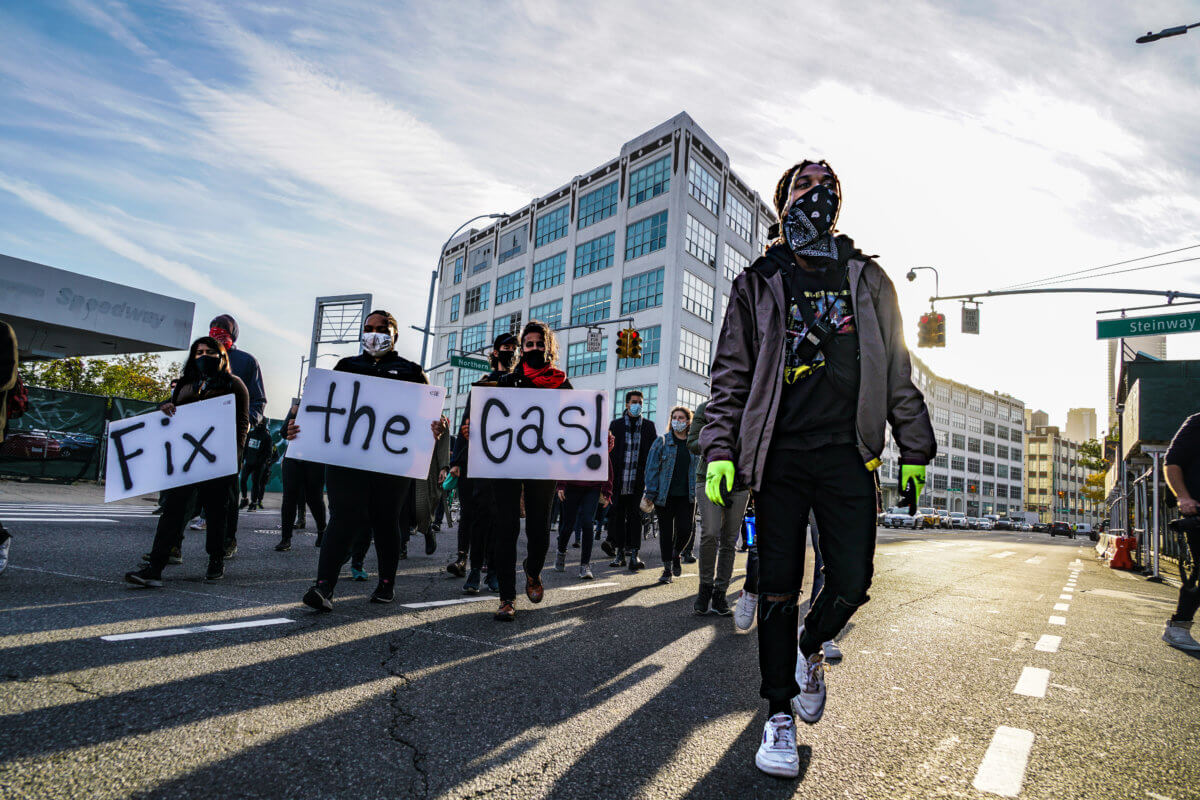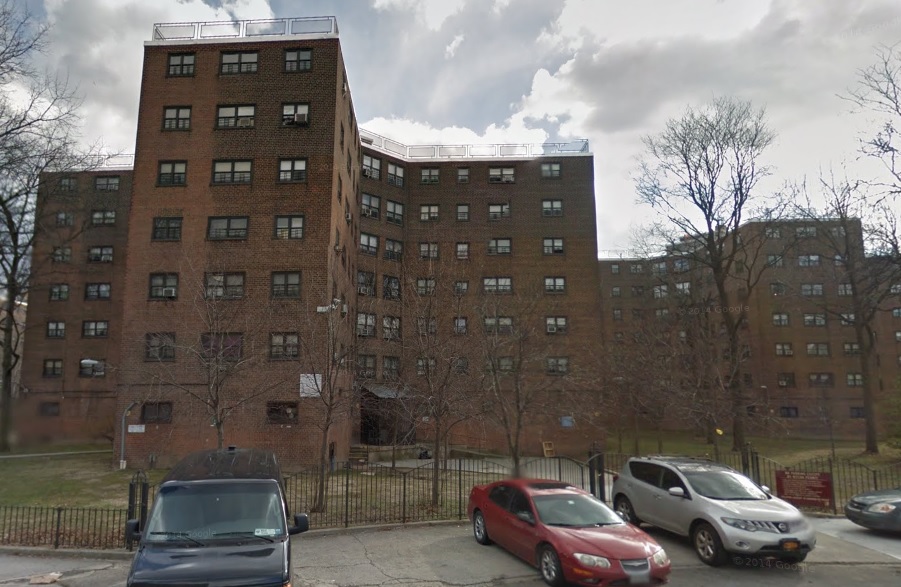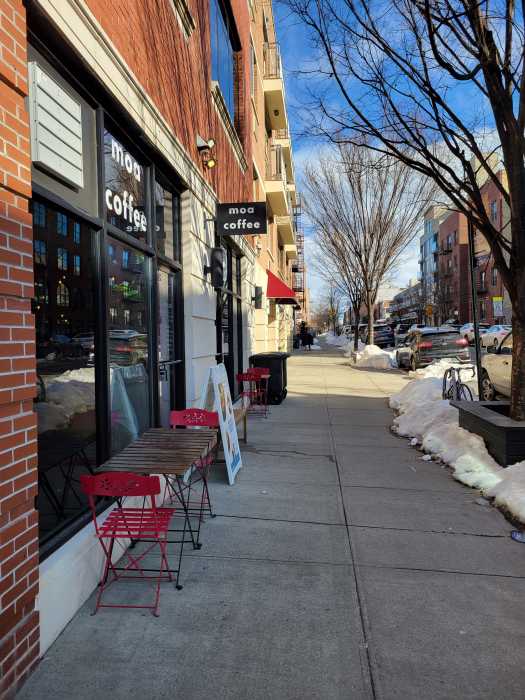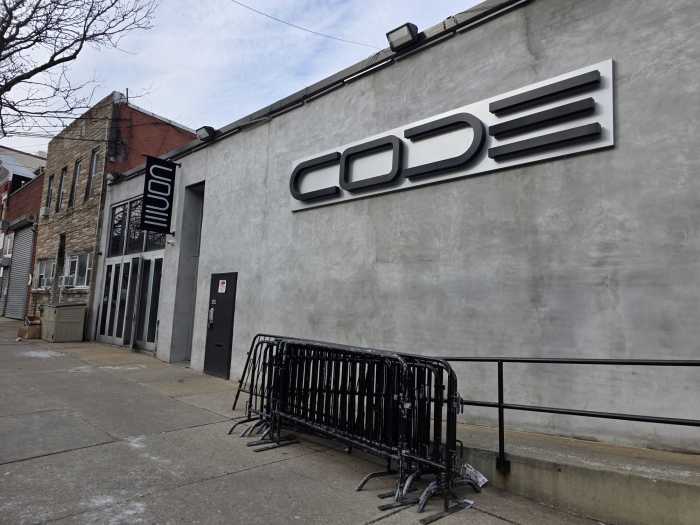An entire Astoria Houses building has been without cooking gas for a month — and NYCHA expects it to be out for another two and a half months, according to Councilman Costa Constantinides.
In separate letters to NYCHA Chair Greg Russ, Constantinides and Congresswoman Carolyn Maloney implored the agency to restore the cooking gas at 1-04 Astoria Blvd. before Thanksgiving.
“Indeed, this virus calls for bold action whenever an issue arises. I find it troubling that NYCHA expects the cooking gas to be out for up to 78 days from the outage,” Constantinides wrote in his letter. “Holidays are supposed to be a time of joy, when we celebrate the good and move past the bad of another year. The meals we cook represent family values, passed down from generation to generation, to tell the story of where we’ve come from and where we’re going. Even though we cannot have large family gatherings, Astoria Houses residents deserve to prepare their home-cooked traditions. To sacrifice that is to let this virus win.”
The month-long outage has caused local elected officials, including State Senate Deputy Leader Michael Gianaris, as well as Queens residents to put pressure on NYCHA to not only restore the utility, but also to provide clear communication for tenants.

“During a time that is already rife with uncertainty, it is deeply concerning that NYCHA cannot provide more clarity for its residents,” Maloney wrote in her letter. “I am requesting that NYCHA release a clear timeline for the intended repairs, and that NYCHA continues to address the issue with the utmost urgency.”
Maloney and Constantinides also asked NYCHA to come up with a long-term solution for tenants — aside from the hot plates it provided to each household. The lawmakers suggested either a hot meal program or a move toward a more sustainable and resilient option.
Kimberly Elliot, a tenant of Astoria Houses’ 1-04 building, told QNS a better solution to the problem might be to provide the 48 households in the building with an electric stove while NYCHA repairs the gas.
“Electric stove would be long-term alternative — a long-term solution to a major problem,” said Elliot. “This way we can cook. You can take as long as you want.”
Elliot suggested they use money from the rent tenants pay to purchase the electric stoves, then take them back once they’re done. That way NYCHA would have the stoves in their inventory in case the same issue arises at other complexes, she said.
Elliot explained that while community members and organizations have stepped up to donate hot food and groceries, the cooking gas outage has caused her and her neighbors added stress.
“I’m 50 years old. I’ve had no medical conditions. With all that’s going, my doctor said my blood pressure is high, he said ‘What are you doing?’ and I said, ‘I can’t cook. I got no gas,'” she said.

Gianaris led the call for NYCHA to provide tenants with prorated rents due to the cooking gas outage, with Contantinides and Maloney echoing that suggestion.
“Impacted NYCHA residents deserve better and should be provided with hot food service and prorated rents for harm caused by this shut off,” he previously stated.
Elliot, a mother and grandmother, said her neighbors are buying electric appliances they never had before, including microwaves and toasters.
“You know how long it takes me to cook a meal? We don’t have kids at school anymore, they’re home, the parents are working from home. That’s three meals a day and one single hot plate,” she said. “You can’t even sit down as a family and eat.”
Elliot said management told them they will have to re-pipe the building after an inspector found a gas leak on the third and fourth floor, which could take several months or a year to do.
In his letter, Constantinides wrote that he’s aware of how long gas restorations can take, and how costly repairing gas cooking lines can be, as NYCHA projects spending $145 million on gas riser replacement projects by 2023.
Earlier this month, NYCHA released its strategic plan for reducing greenhouse gas (GHG) emissions from their operations to meet New York City’s Climate Mobilization Act, which included replacing gas stoves with electric induction stoves.
“NYCHA is meeting the challenge of climate change head-on by leveraging sustainable technology to significantly reduce GHG emissions across our 2,410 residential buildings,” said Russ in the press release. “Replacing costly fossil fuel burning systems with low-carbon, electric systems benefits our residents, our neighborhoods and our city.”
Constantinides added that the current situation at Astoria Houses gives NYCHA the opportunity to begin phasing out the gas stoves entirely and replace them with induction ranges, agreeing with Elliot’s suggestion.
“The latest outage highlights how dangerous and unreliable natural gas is as a cooking source. A single leak can disrupt dozens of lives for months on end — without a clear date on when it will be restored. As we seek to rebuild and improve public housing to make it more sustainable, I agree that NYCHA must explore how it can replace gas stoves with electric ones,” said Constantinides. “We have the opportunity to reduce emissions as well as guarantee NYCHA residents can cook without chaotic disruptions.”
Maloney said she’s open to any and all suggestion to mitigate the issue.
“I am open to all suggestions as to how we can best decrease this unnecessary burden on families,” she said. “Living without cooking gas for a month and depending on a single hot plate to prepare meals is unacceptable. It is especially burdensome on busy working families and senior citizens who have already been dealt a difficult hand during the COVID-19 crisis.”
A NYCHA spokesperson told QNS the agency is “making every effort to ensure our residents’ safety as we work to restore service as quickly as possible.”


































